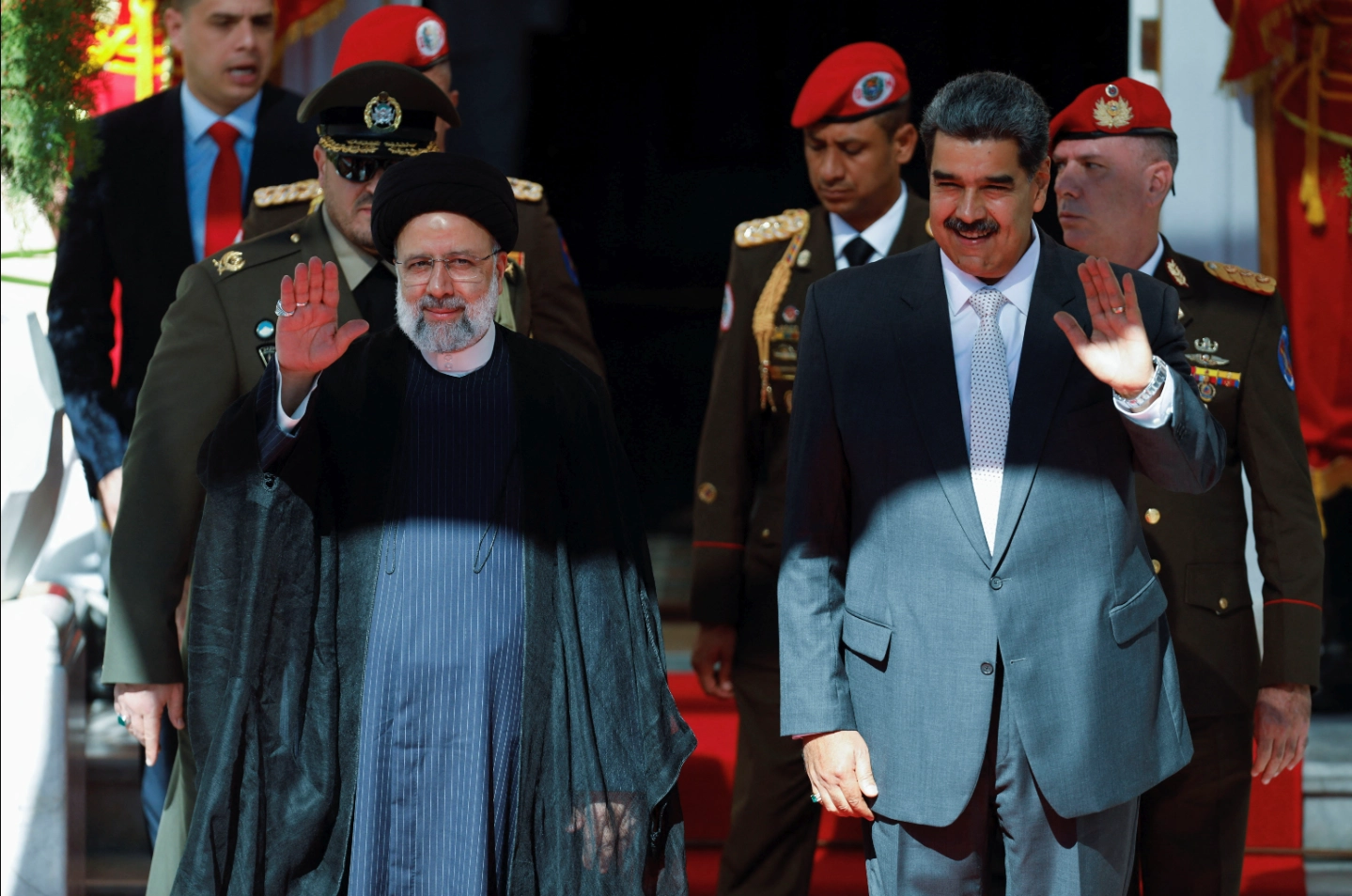Contacts with Venezuela during the presidency of Sayid Mohamed Khatami (1997-2005) marked the beginning of Iran’s rapprochement with Latin America. Since 2005, the Iranian president, Mahmud Ahmadinejad, began to establish a good rapport with Hugo Chávez. The alliance allowed Iran to begin considering a much more ambitious plan to gain support in Latin America.
Iran was in a situation of isolation as a result of its nuclear program. The Tehran government needed to look for new partners. In the proposals of the Bolivarian left he found unity to act against a common enemy, which they defined as Western imperialism.
For Iran, the great challenge was to establish lasting relations with distant countries. What common points could exist between both realities?
Points in common
The Islamic Republic of Iran is a Shiite clerical regime in which the religious leaders (ayatollahs) establish the general lines by which the country is governed. The head of the State is the Supreme Leader and has political and religious powers. He holds power along with the 12-member Guardian Council. To a large extent, together they limit the ability of the country’s president to make decisions. Therefore, as an Islamic republic, it is religious principles that mark the future of political, social, economic and cultural life.
The reality of Iran contrasts with that of Latin American countries. Furthermore, if the proposals of various left-wing political groups, through which Iran tries to gain presence in Latin America, are analyzed, numerous contradictions can be found. Issues such as the weight of religion in political life, or aspects defended by broad sectors of the left, such as homosexual marriages, sex change or euthanasia, are punished in Iran with the death penalty.
Despite the great distance that separates both realities, common interests based on the rejection of the United States and the formation of an alternative world order have allowed the consolidation of ties between Iran and several Latin American countries.
Therefore, there is no ideological component in this approach. Rather, it responds to a pragmatic alliance motivated by the possibility of being able to act against a common enemy. Furthermore, Iran needs political and commercial allies in Latin America to try to alleviate the consequences of the sanctions and the bad relations maintained with most of its neighbors in the Middle East.
Instruments used by Iran
The diplomacy deployed in Latin America at the beginning was complemented with other actions so that society viewed Iran as an ally. The government developed a soft power program at three levels of action: activity carried out from embassies, the use of the media and a strong presence on social networks.
It is striking that Iran focuses part of its strategy on intense activity on social networks. The vast majority of them are prohibited and blocked within their borders. The authorities in Tehran are aware of the need to gain influence over public opinion in Latin America so that the region approves the agreements that can be reached with the ayatollah regime.
With the aim of getting closer to Latin America, Iran developed a narrative that aims to praise the links between both realities. There are permanent allusions to his position against imperialism and the need to establish a new world order. The call to fight against imperialism contrasts with the cultural values that are sought to be transmitted, which permanently refer to the roots of the Persian empire. Religious values are always a constant in the Iranian message. The principles of Shiite Islam are exported. But, at the same time, the importance of religion is highlighted to consolidate other values, such as loyalty or family, regardless of the cult that is practiced. They also express their identification with the proposals of the Bolivarian left.
HispanTV, news in Spanish
The Iranian strategy also included the promotion of a Spanish-language news channel that was inaugurated by President Ahmadinejad in 2012. In his inaugural speech, Ahmadinejad made it clear that HispanTV emerged as an ideological instrument aimed at confronting those who sought to dominate the world.
Since the beginning of its broadcasts, HispanTV has been identified as a propaganda instrument of the Iranian regime and criticized for spreading disinformation. However, the alternative approach it offers to international reality has managed to connect with broad sectors of the Latin American left. Although HispanTV cannot be considered a reference news channel in Latin America, it is a means for Iran to fulfill its purpose. The messages broadcast through the channel are subsequently disseminated through social networks and reach different groups in society.
The Latin American political evolution of recent years indicates that progressive proposals managed to win several elections in the region. Mexico, Colombia, Peru or Chile are countries that, traditionally, remained closer to the interests of the United States. It is evident that HispanTV and Iranian soft power cannot be considered to have been decisive factors in this change, but they did contribute to reinforcing the message of left-wing political groups.
*Text originally published in Diálogo Político












